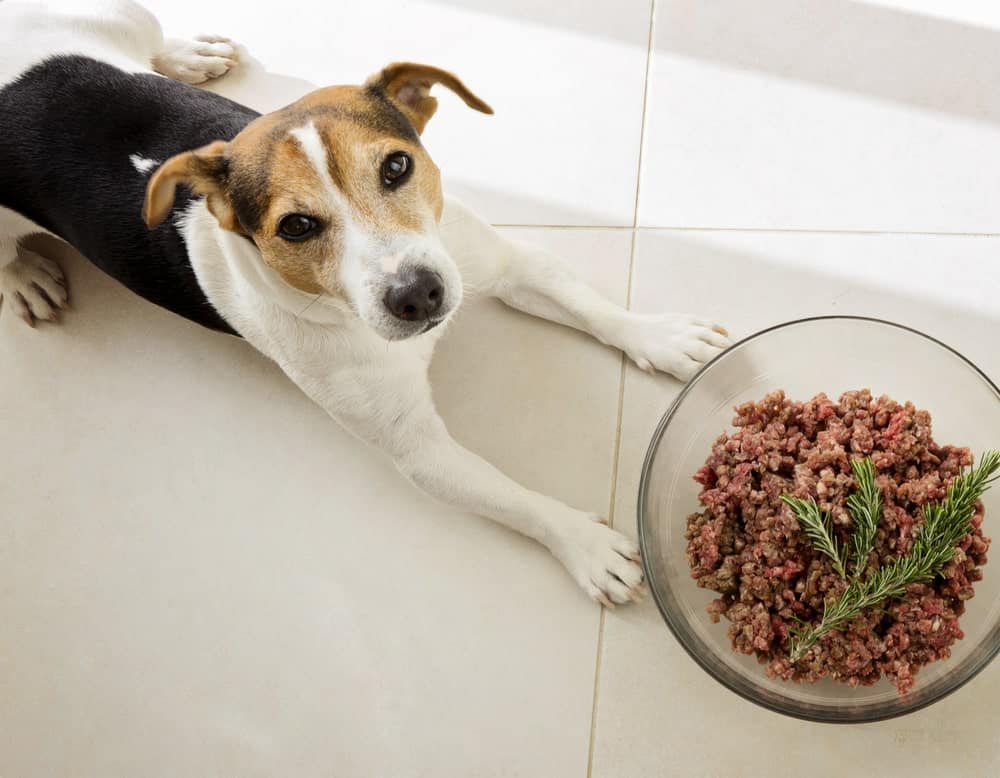“This post contains affiliate links, and I will be compensated if you make a purchase after clicking on my links.”
The U.S. Food and Drug Administration (FDA) has long been an outspoken opponent of raw feeding, exhibiting discriminatory behavior against raw pet food manufacturers, publishing alerts about the so-called dangers of raw pet food (while raw pet food recalls and illnesses associated with feeding or handling raw pet food make up only a tiny fraction of pet food concerns) and putting rules and regulations in place that take away a pet parents freedom to choose the diet that’s best for their pet.
In an effort to give that choice back to pet parents, ANSWERS™ Pet Food is taking a stand against the FDA.
“Regulators are destroying your freedom of choice by eliminating the option of raw or minimally processed commercial pet food. Your right to purchase and feed raw or minimally processed pet food manufactured by small family and independent companies is being eroded by big business and government.“

ANSWERS™ Pet Food has filed a Declaratory Judgment Complaint and is seeking Injunctive Relief against the FDA in the United States Colorado District Court. The complaint challenges the lawfulness of the FDA’s actions, with cooperation provided by various members of the Association of American Feed Control Officials (AAFCO), by adopting a nationwide, zero tolerance standard for Salmonella in pet food that is noncompliant with federal law, unsupported by science, and beyond the FDA’s scope of power as delegated by Congress.
In the complaint, the alleged extensive FDA regulatory abuse is explained. ANSWERS™ asserts the FDA is unlawfully targeting the raw pet food industry, seeking to eradicate true, raw food from the marketplace through discriminatory and selective behavior. The FDA has been open in their bias against the commercial raw pet food industry, despite the fact that the majority of reported illnesses and deaths occur in connection with the feeding of cooked and heavily processed commercial pet foods. The FDA has chosen to define when a product is adulterated without following federal law and without proper science. The FDA has government regulators attempting to make raw and minimally processed food appear dangerous, when science has proven that animal health actually benefits from minimally processed pet foods.
While the United States Department of Agriculture (U.S.D.A) permits allowable quantities of Salmonella in human food, the FDA who regulates pet food, rather than following federal law as set forth by the federal Food, Drug and Cosmetic Act (FD&C ACT), has instead adopted an unsustainable, zero tolerance standard for Salmonella presence in pet food, based on a “Non- Binding” Compliance Policy Guide (CPG). FDA guidance policies do not establish legally enforceable responsibilities, yet the adopted, supposedly nonbinding CPG has the FDA taking enforcement actions against manufacturers and imposes obligations upon the manufacturer creating legal consequences flowing from it.
The FD&C Act defines when a product is adulterated. It requires in addition to several other steps a suspected harmful substance be quantified, and a Health Hazard Evaluation be performed to determine if the product ordinarily renders it injurious to health. Currently the FDA does not follow the law for the more than 2,500 strains of Salmonella, most of which do not cause illness, but does quantify other contaminants such as aflatoxin in dry pet food, creating allowable tolerances. The Food Safety Modernization Act (FSMA) grants the FDA authority to mandate a recall, but only after following the FD&C Act.
A report published in 2007, “FDA Science and Mission at Risk”, cited the FDA couldn’t fulfill its mission due to such issues as: a weak scientific organizational base and structure, with insufficient capacity and capability, and an inadequate information technology infrastructure. Using the CPG is easy and inexpensive to quote, but expensive for the public to present meaningful science to challenge these guides and deprives persons their due process and right to participate in regulation. As a result, the FDA, AAFCO and participating states are deciding what the public can and should feed their pets based on administrative policy views, not science or the law- taking away the public’s freedom of food choice.
In addition to the filings, ANSWERS™ launched a comprehensive campaign, “Freedom to Feed”, where the public was able to get involved to sign a petition and learn more.






















I think there is a reason that raw pet food diets aren’t approved by the FDA for wide sale. If you or another pet owner wants to switch their dog to a raw pet food diet, that’s something that can easily be prepared at home. Personally I think there are more convenient and cost effective alternatives to a raw food diet and certain breeds don’t deal with raw foods particularly well. I tried this on a few of my dogs in the past and it gave them the runs.
Bev Wilson
says:Jacob Myers, When switching a dog to raw food it needs to be introduced gradually or it can upset their tummies and give them loose stools. I am currently switching over to raw food but doing it about 1/4 raw to 3/4 kibble. At present they are happily taking 50/50 without any bad side effects. It takes about a month to fully switch them from dry to raw food.